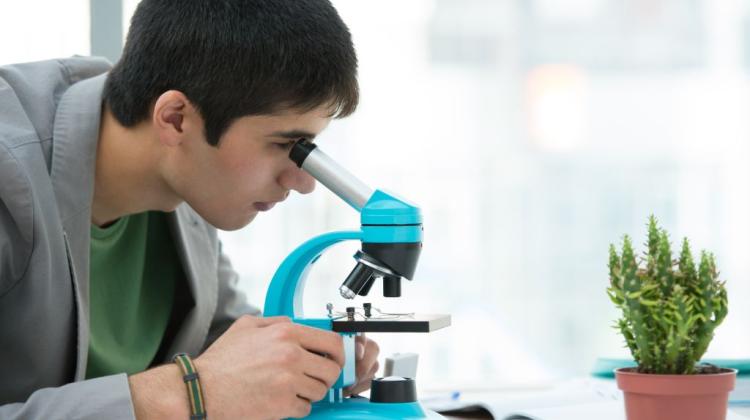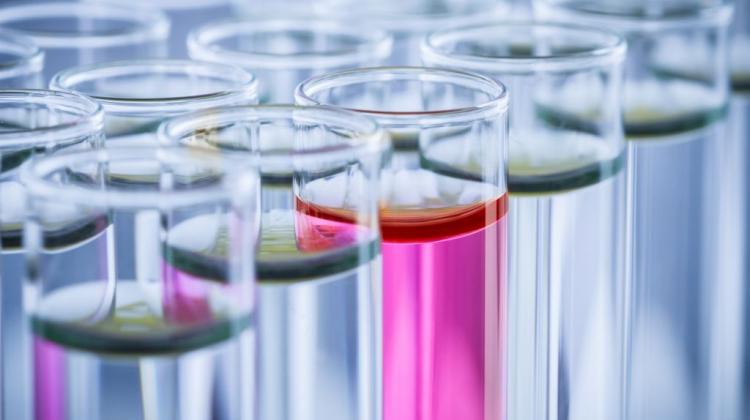Polish consortium of scientific institutes creates modern vaccines
 PAP © 2012 /
PAP © 2012 /
Package of vaccines with route of administration other than injection is being developed by the Institute of Biotechnology and Antibiotics (IBA) in the academic consortium of the University of Gdańsk and Institute of Biochemistry and Biophysics PAS under the Operational Programme Innovative Economy.
In an interview with PAP, IBA director Dr. Piotr Borowicz clarified whether bird flu is still a real threat, and explained the intricacies of the process of commercialisation of biopharmaceuticals.
"Avian influenza seems to pose little threat to people today. But a reasonable researcher also takes into account what can happen in 20 years. Everyone talked about the recent scientific reports on the possibility of producing the virus in the laboratory. If people have managed to create it, nature will certainly do it"- warned Dr. Borowicz.
The purpose of the vaccine project is to find simple solutions that make it cost-effective to continue to vaccinate poultry. In the event of illness, farm birds must be killed.
Dr. Borowicz noted during the last epidemics farmers received compensation and had no problems with the sale, so there were opinions that it was even profitable. However, there is concern that one day the bird flu virus might "come out of the henhouse" and threaten people. Especially if, for example, it mutates with swine flu, which does not transmit well, is not as contagious, but much more severe. Such mutation may result in a virus that spreads easily and severely affects the human body. To prevent this, we have to eliminate the possibility of the virus spreading and vaccinate, not just farm birds, but also wild birds.
How to make it more profitable for farmers to vaccinate the animals than to receive compensation? If scientists manage to make a vaccine that can be administered with the feed or water, it will be an easy and cheap solution. Then the widespread vaccination becomes real.
"Currently, chicken farms use several standard vaccinations, the addition of one more vaccine will be profitable for everyone. If we fail to make a vaccine with route of administration other than injection, the things get complicated. Our results, however, are very promising. The first vaccine we made worked great. It has not been administered via food yet, but studies have shown that all vaccinated chickens infected with avian influenza not only survived, but have not been not infecting other healthy and unvaccinated birds. Now, our goal is the food model"- said the IBA director.
Scientists are already working on the model. If they make a good vaccine against avian influenza virus, it will be possible to use it as a basis for a system to develop several different vaccines, not just against flu. Significant achievements have already been noted in vaccines against rotavirus and bovine liver fluke.
According to the researcher, a lot will also depend on state policies. "Vaccines are for the poor, the drugs are for the rich. This applies not only to patients, but also countries. The progress in the drug sector results in a situation where treatment prices and the reimbursement of advanced drugs begin to overload budgets. That happens not only in Poland but also in Germany, in France. Vaccines are cheap and offer big savings, but on the other hand nobody likes to spend money when he is not sick yet" - he said.
Vaccine project is being carried out by a consortium of the Institute of Biotechnology and Antibiotics, Institute of Biochemistry and Biophysics of the Polish Academy of Sciences and the University of Gdańsk. Commercialisation of the vaccine will not be easy, though OPIE assumptions are that the research institutes themselves can not deal with it, they must find an entity willing to commercialise the results.
"The problem is that Polish companies are not technically prepared for the production of such vaccines, the vaccine industry in the country collapsed and must be created from scratch. If there are not interested businesses, maybe such businesses should be created, a company started. There is no better way in the world and no other solution today in Poland. I hope that our project continues here in Poland, I hope we will have specialists able to produce vaccines" - said Dr. Borowicz.
The project is combined with the new insulin analogues development. The whole projject received PLN 90 million grant. Dr. Borowicz noted that drug biotechnology is particularly expensive, as it is extensive and highly regulated. "A package of innovative biopharmaceuticals for the human and animal treatment and prevention " is an application project planned for seven years.
"To market a drug on we need to register it, demonstrate and document its safety and pharmaceutical efficacy. This requires many tests, documents detailing the construction of a given protein, its toxicity, pollution limits. These seven years will not even be sufficient for all preclinical studies" - the scientist admitted.
He explained that biopharmaceuticals are different from drugs, because our environment can be inorganic or consist of elements of living matter. In addition to small chemical molecules, we have very large biological molecules: proteins and peptides. They have complicated spatial structures, in addition they connect in different ways. Such are the molecules of vaccines, as well as insulin analogues. For that reason, biopharmaceutical drugs are much more expensive than drugs consisting of chemical molecules.
Scientists are able to create biologically active proteins that act better at the cellular level. This results in new forms of pharmaceutical drugs with improved properties for use in new areas of treatment. Biopharmaceuticals are often more advanced than proteins produced in the human body, and find new therapeutic applications. These drugs have a high global market position.
PAP - Science and Scholarship in Poland, Karolina Olszewska
agt/ mrt/
tr. RL
Przed dodaniem komentarza prosimy o zapoznanie z Regulaminem forum serwisu Nauka w Polsce.


















